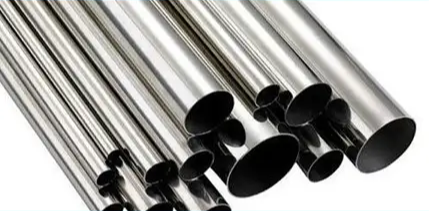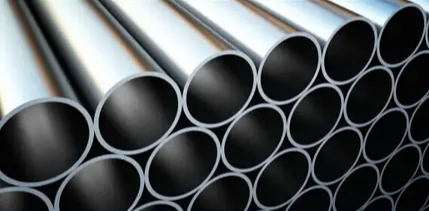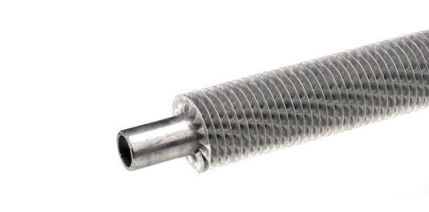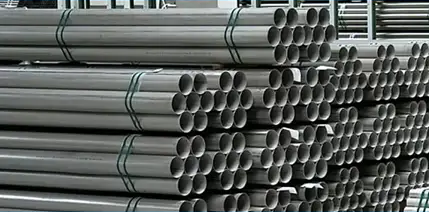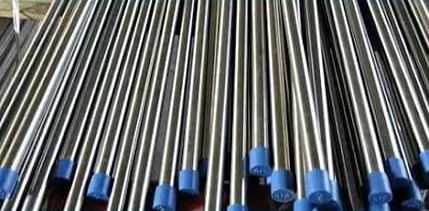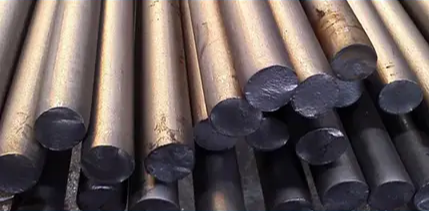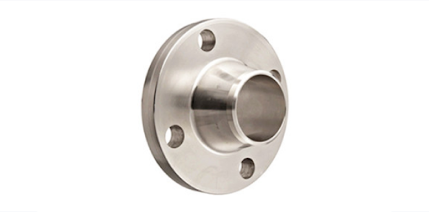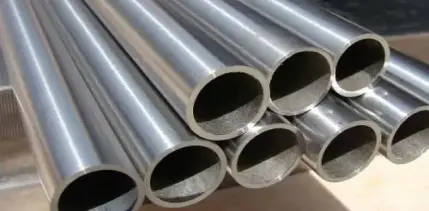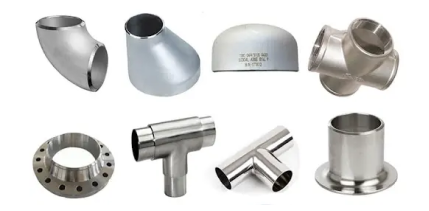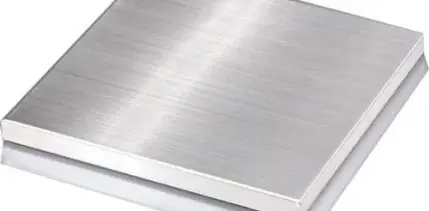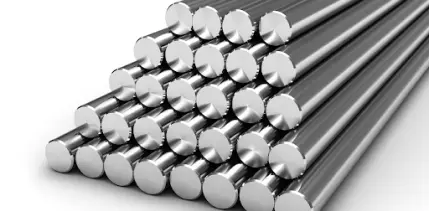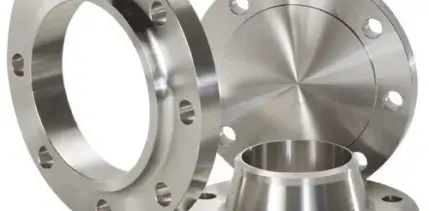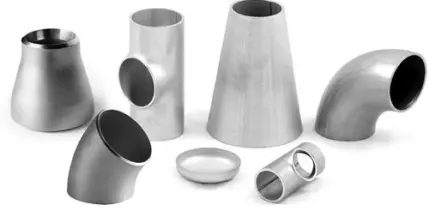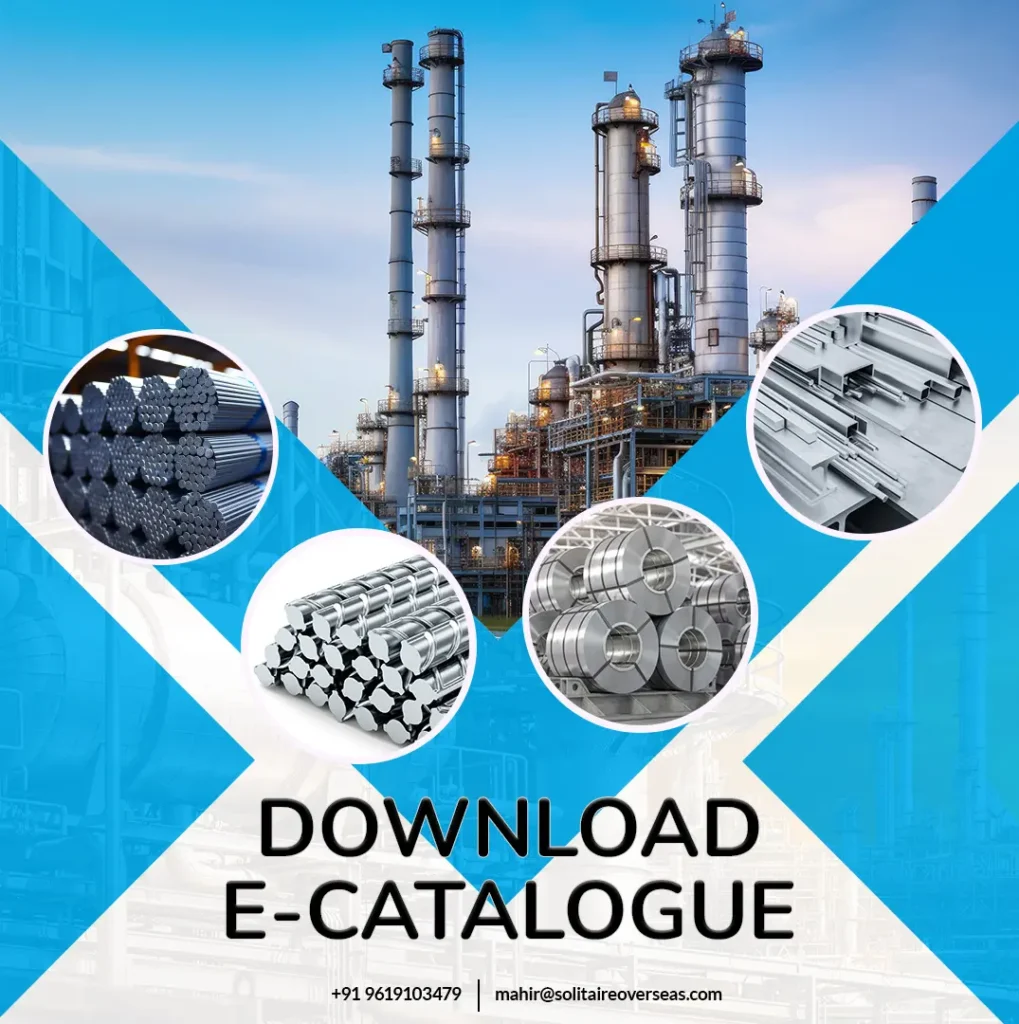Stainless Steel Products Supplier
Stainless Steel Supplier, Stainless Steel Plates & Sheets, Stainless Steel pipe & tube, Stainless Steel Flanges, Stainless Steel Fasteners
Stainless Steel Products
Solitaire Steel stands as one of India’s top exporters and suppliers of stainless steel products. Our extensive product range includes stainless steel pipes, tubes, plates, sheets, bars, rods, flanges, fittings, fasteners, and coils. We pride ourselves on offering products tailored to meet our clients’ specific needs and requirements
Stainless steel is known for its versatility, making it a preferred material in various industries. Its excellent corrosion resistance, durability, and attractive appearance make it ideal for numerous applications. In everyday life, stainless steel is commonly used in kitchens and bathrooms, appearing in sinks, faucets, appliances, and cutlery.
In the automotive and transportation sectors, stainless steel is essential for exhaust systems, trim, and components exposed to high temperatures and corrosive environments. In construction, it plays a vital role in architectural features, structural supports, and cladding. Additionally, stainless steel finds applications in medical equipment, marine hardware, and electronics. Thanks to its unique combination of properties, stainless steel remains a reliable and versatile material across a broad spectrum of industries.
What is Stainless Steel?
Stainless steel is a type of steel alloy that contains at least 11% chromium. This chromium forms a protective layer on the steel’s surface, which helps prevent rust and corrosion. The higher the chromium content, the stronger this protective layer becomes, enhancing the steel’s ability to resist corrosion and maintain its appearance over time.
Why is Stainless Steel primarily used in Industrial ?
Stainless steel is widely used in industrial applications because it offers an easily cleanable and sterile solution, essential for environments where strict hygiene is crucial. It provides several advantages, including a sleek, modern appearance, excellent corrosion resistance, ease of fabrication, fire and heat resistance, and high strength-to-weight ratio.
Primary grades like SS 304, SS 304L, SS 316, and SS 316L are commonly used due to these benefits. The durability and aesthetic appeal of stainless steel make it a preferred choice across various industries, from food processing to pharmaceuticals.
Types of Stainless Steel Products
Stainless Steel Composition
Stainless steel is a steel alloy known for its resistance to corrosion, staining, and rust. It consists of several key elements, each contributing to its unique properties:
- Iron (Fe): The primary component of stainless steel, forming the base of the alloy.
- Chromium (Cr): The most crucial element, providing corrosion resistance by forming a protective oxide layer on the surface. Chromium content typically ranges from 10.5% to 30%.
- Nickel (Ni): Enhances corrosion resistance, ductility, and toughness, making stainless steel more versatile.
- Carbon (C): Increases strength and hardness, though it’s typically kept low to maintain corrosion resistance.
- Molybdenum (Mo): Improves resistance to pitting and crevice corrosion, especially in chloride-rich environments.
- Titanium (Ti): Added to prevent intergranular corrosion, particularly in high-temperature applications.
- Copper (Cu): Enhances resistance to sulfuric acid, making it valuable in specific industrial settings.
- Nitrogen (N): Occasionally included to boost strength and further enhance corrosion resistance.
The exact composition of stainless steel varies depending on the grade and intended use, with different combinations of these elements tailored to meet specific requirements.
Stainless Steel Grades
Stainless steel comes in various grades, each with distinct compositions and properties tailored to specific applications:
- Austenitic Stainless Steel:
- Characteristics: The most common type, making up about 70% of all stainless steel production. It is highly corrosion-resistant, non-magnetic, and known for excellent formability and weldability.
- Applications: Widely used in kitchen appliances, sinks, and food processing equipment.
- Popular Grades: 304, 316, 321.
- Ferritic Stainless Steel:
- Characteristics: Less corrosion-resistant than austenitic steel but more resistant to stress corrosion cracking. It is magnetic and generally more cost-effective.
- Applications: Common in automotive and industrial applications, like exhaust systems and decorative trim.
- Popular Grades: 409, 430.
- Martensitic Stainless Steel:
- Characteristics: Known for its hardness, strength, and moderate corrosion resistance. It is magnetic and can be heat-treated for additional hardness.
- Applications: Often used in knives, cutlery, and other high-wear tools.
- Popular Grades: 410, 420.
- Duplex Stainless Steel:
- Characteristics: A hybrid of austenitic and ferritic stainless steels, offering superior strength and corrosion resistance. It also provides enhanced resistance to stress corrosion cracking.
- Applications: Ideal for chemical processing, oil and gas industries, and marine applications.
- Popular Grades: 2205, 2507.
The selection of a stainless steel grade depends on the specific requirements, including corrosion resistance, strength, and whether magnetic properties are needed. Each grade is designed to meet particular demands across various industries.
Stainless Steel Products and Applications
Stainless steel is a versatile material used across various industries due to its durability, corrosion resistance, and aesthetic appeal. Some of the most common stainless steel products and their applications include:
- Culinary uses.
- Kitchen sinks.
- Cutlery.
- Cookware.
- Surgical tools and
- medical equipment.
- Hemostats.
- Surgical implants.
- Temporary crowns (dentistry)
These applications showcase the wide range of uses for stainless steel, highlighting its importance in both everyday and specialized tools and equipment.

